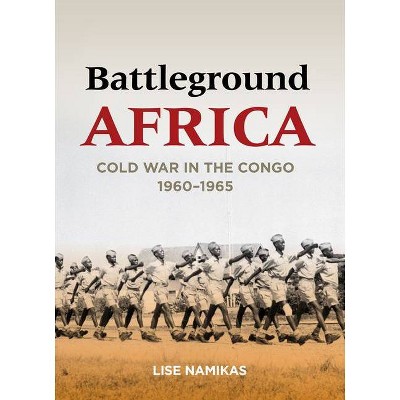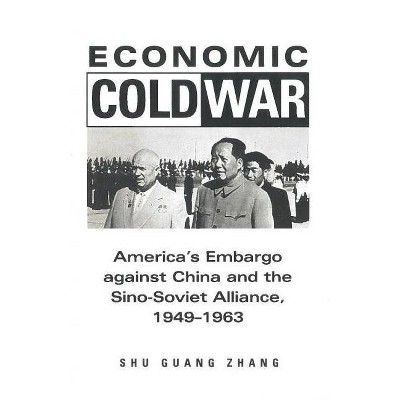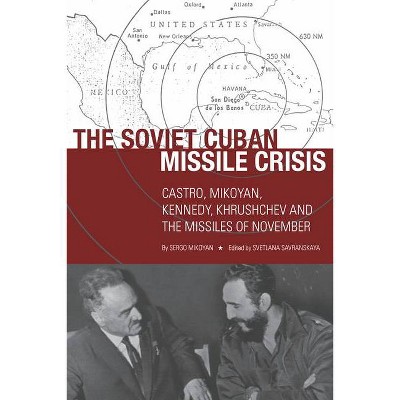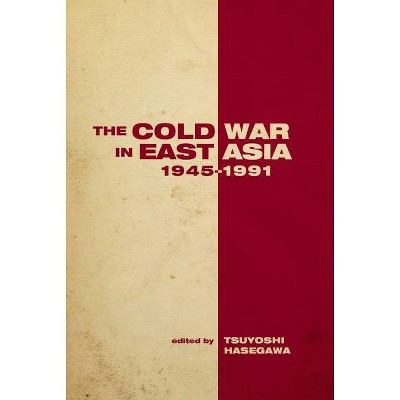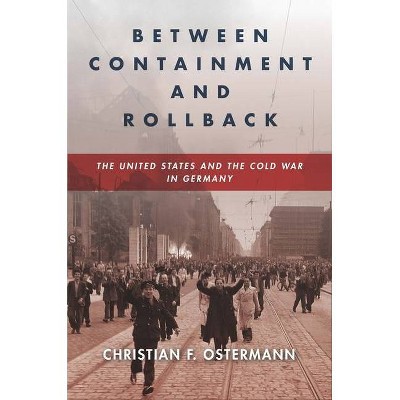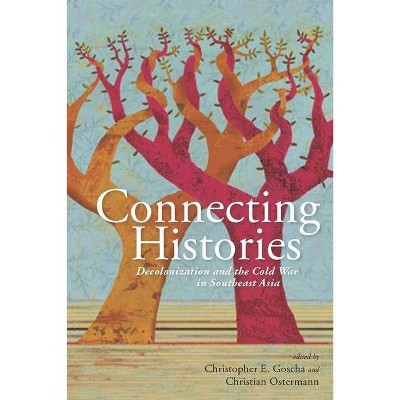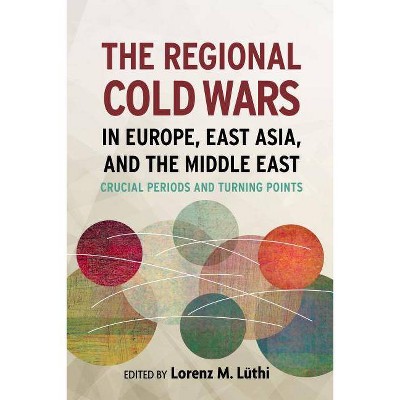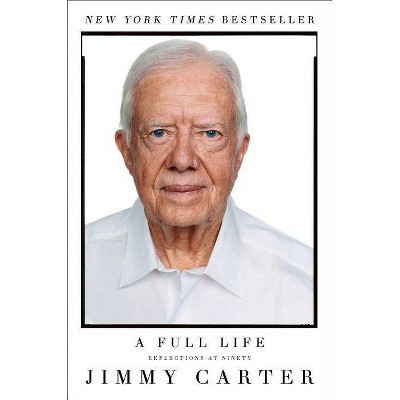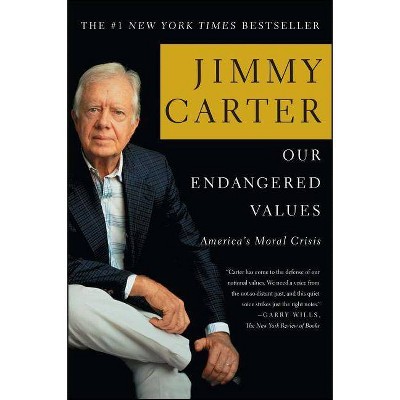Jimmy Carter in Africa - (Cold War International History Project) by Nancy Mitchell (Paperback)
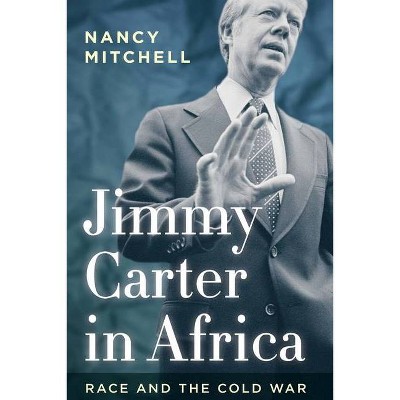
Similar Products
Products of same category from the store
AllProduct info
<p/><br></br><p><b> Book Synopsis </b></p></br></br><p>In the mid-1970s, the Cold War had frozen into a nuclear stalemate in Europe and retreated from the headlines in Asia. As Gerald Ford and Jimmy Carter fought for the presidency in late 1976, the superpower struggle overseas seemed to take a backseat to more contentious domestic issues of race relations and rising unemployment. There was one continent, however, where the Cold War was on the point of flaring hot: Africa. </p> <p><i>Jimmy Carter in Africa</i> opens just after Henry Kissinger's failed 1975 plot in Angola, as Carter launches his presidential campaign. The Civil Rights Act was only a decade old, and issues of racial justice remained contentious. Racism at home undermined Americans' efforts to win hearts and minds abroad and provided potent propaganda to the Kremlin. As President Carter confronted Africa, the essence of American foreign policy--stopping Soviet expansion--slammed up against the most explosive and raw aspect of American domestic politics--racism.</p> <p>Drawing on candid interviews with Carter, as well as key U.S. and foreign diplomats, and on a dazzling array of international archival sources, Nancy Mitchell offers a timely reevaluation of the Carter administration and of the man himself. In the face of two major tests, in Rhodesia and the Horn of Africa, Carter grappled with questions of Cold War competition, domestic politics, personal loyalty, and decision-making style. Mitchell reveals an administration not beset by weakness and indecision, as is too commonly assumed, but rather constrained by Cold War dynamics and by the president's own temperament as he wrestled with a divided public and his own human failings. <i>Jimmy Carter in Africa</i> presents a stark portrait of how deeply Cold War politics and racial justice were intertwined. </p><p/><br></br><p><b> Review Quotes </b></p></br></br><br><i>Jimmy Carter in Africa</i> manages to be many books at once. It is a much-needed assessment of Jimmy Carter's foreign policy. It is a multi-archival exploration of an under-researched area of the Cold War. It is also an excellent sketch of the intersection of race and politics in American decision-making. Finally, it is a worthy attempt at understanding the inner workings of Jimmy Carter himself.--Louise Woodroofe "Office of the Historian, U.S. Department of State, <i>H-Diplo Roundtable</i>"<br><br><i>Jimmy Carter in Africa</i> may not be a summary vindication of a presidency that's rightly criticized as something of a muddle, but it's by a wide margin the best book about that presidency that's yet appeared.--Steve Donoghue "<i>Christian Science Monitor</i>"<br><br>Mitchell is truly pioneering in her effort to include a multitude of African, Latin American, European and even Australian sources in the story of the diplomacy of this period. She also does an excellent job of integrating within her narrative America's domestic racial politics, and their effects on men like Jimmy Carter and Andrew Young. <i>Jimmy Carter in Africa</i> will certainly compel historians to reassess Carter's diplomacy and to recognize both his significant achievements and failures on the African continent.--Thomas Schwartz "Vanderbilt University"<br><br>Mitchell writes clearly in sweeping away historical judgments she sees as myths, most prominently concerning Jimmy Carter (always a Cold Warrior, in Mitchell's formulation) and his principal advisers. On these questions, her concluding chapter is especially strong. An impressive historical work in every respect. Recommendation: Essential--D. N. Buckaloo, <i>Choice</i><br><br>Mitchell's superb treatment of international maneuvering in Africa in the 1970s delivers the most incisive portrait yet of Carter and other personalities at the top of his administration plus, as a bonus, the best examination to date of Henry Kissinger's discovery of Africa in his last year as secretary of state. An absorbing, important, and entertaining read.--James G. Hershberg "author of <i>Marigold: The Lost Chance for Peace in Vietnam</i>"<br><br>Nancy Mitchell's <i>Jimmy Carter in Africa: Race and the Cold War</i> is not only one of the best books I have read on the U.S. and Africa; it is one of the best books I have read on American diplomatic history. It not only offers a fresh and provocative analysis of Jimmy Carter and his diplomacy, but raises significant questions about both the goals and process of American foreign policy. The topic seems narrow, but the author's insights have wide implications Mitchell's writing is clear, flowing, and filled with telling anecdotes, detail, and critical judgments.--Thomas Noer "<i>H-Diplo Roundtable</i>"<br><br>Nancy Mitchell's <i>Jimmy Carter in Africa: Race in the Cold War</i> is a phenomenal addition to the scholarship of the Cold War. Drawing heavily on archival research conducted in the United States, Britain, and South Africa and on documents from Cuba and Zimbabwe, the book presents an in-depth and engaging international history of President Jimmy Carter's foreign policy. Mitchell does a commendable job of providing context, ensuring that the book is readily accessible regardless of a reader's expertise. It is an essential and enjoyable read for any historian interested in the late Cold War or modern Africa.--Benjamin Griffin "<i>H-War</i>"<br><br>Nancy Mitchell's brilliant book offers a revolutionary view of Jimmy Carter's foreign policy and a pathbreaking examination of the meaning of détente. A true page turner.--Piero Gleijeses "author of <i>Visions of Freedom: Havana, Washington, Pretoria, and the Struggle for Southern Africa, 1976-1991</i>"<br><br>Nancy Mitchell's exhaustive study of Jimmy Carter's Africa policies (1977-1981) is based on a vast array of once classified and other archival material augmented by many interviews with those directly involved, including with the 39th president of the US. The result is a wealth of fresh insights into the complexity and importance of this critical period in Africa's history, and of how Carter's leadership strengths, talents and core values were tested to good effect.--John Stremlau "<i>South African Journal of International Affairs</i>"<br><br>The luminous writing style, the even tenor with which the author sets out her narrative, her impressive command of the sources, her ability to draw the many different strands together, as well as her persuasive arguments, kept this reviewer riveted from beginning to end. This magisterial book, in short, assuredly deserves a place in any library concerned with international affairs during the Cold War.--Philip Chrimes "<i>International Affairs</i>"<br><br>The research for this book is staggering. It is a model of multiarchival research in many disparate collections in the United States as well as in the archives of numerous other countries. This book will give us a new and much more textured, balanced, and thoughtful portrait of Jimmy Carter as a president and of the foreign policy of his administration.--Melvyn P. Leffler "University of Virginia"<br><br>The volume's arguments and overall importance can not only change our views of Jimmy Carter's foreign policies and the domestic and foreign pressures he overcame to formulate those policies, but also force us to rethink critical parts of US relations with Africa amidst the historic racial and civil rights events of the 1970s.--Walter LaFeber "Cornell University"<br><br>The width and depth of her research is a model that diplomatic historians should aspire to achieve, her writing flows, and she places Carter's Africa policy within the larger context of US foreign policy and politics.--Robert Anthony Waters Jr. "<i>International Journal</i>"<br><br>The Cold War in Africa has received much less attention than the Cold War in Europe and the Middle East, and Nancy Mitchell has made a significant contribution to rectify this. I am sure that <i>Jimmy Carter in Africa</i> will become the standard work for the Cold War in Rhodesia and Ethiopia/Somalia in the 1970s. This book is an outstanding achievement.--Klaus Larres "University of North Carolina Chapel Hill"<br><br>Your extraordinary research has resulted in a truly definitive account of one of the most challenging and important aspects of my presidency.--Jimmy Carter "Former President of the United States"<br><p/><br></br><p><b> About the Author </b></p></br></br><b>Nancy Mitchell</b> is Professor of History at North Carolina State University.
Price History
Price Archive shows prices from various stores, lets you see history and find the cheapest. There is no actual sale on the website. For all support, inquiry and suggestion messagescommunication@pricearchive.us
